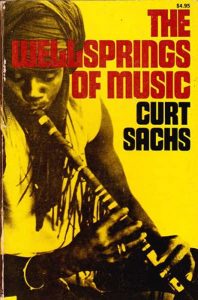 A pioneering student of culture, ethnomusicologist Curt Sachs (1881-1959), made a coherent argument, in terms of the normal coexistence, and, indeed, mutual inter-penetration of cultural influences, among the seeming, disparate forms of fine-art music, authentic folk music, progressive popular music, urban music, and other forms.
A pioneering student of culture, ethnomusicologist Curt Sachs (1881-1959), made a coherent argument, in terms of the normal coexistence, and, indeed, mutual inter-penetration of cultural influences, among the seeming, disparate forms of fine-art music, authentic folk music, progressive popular music, urban music, and other forms.
Cultural suppression of folk music in the English Civil War and the interregnum of Oliver Cromwell, was injurious to the development of a native English art music.
An example of the interrelation of art- and folk music, may be considered in the English Suite No. 6 in D Minor, BWV 811: VI. Gavotte II, with a bagpipe like compositional style. (The influence of Bach on Brazilian progressive popular music is an example in the reverse, the downward direction.)
Sachs made an assertion that is contested to this day; yet the facts that prompted his claim are indisputable: between the death of Henry Purcell in 1695 and the rise of Sir Edward Elgar in 1898, there was a greater than 200 year gap in the presence of home-born English fine art composers. (Thomas Arne, “Hail Britania”, and Charles Avison, orchestral arrangements of Domenico Scarlatti’s harpsichord music, notwithstanding.)
Sen. Daniel Patrick Monyihan was famous for his observation, “everyone has a right to their own opinions, but not their own facts”.
Since Curt Sachs made the observation, his opinion is significant, and needs to be disproved, by those who don’t accept it:
Sachs maintained that Roundhead cultural repression of folk music–witnessed by a play Bartholomew Fair by a man who paid with his life for resisting that repression, Ben Jonson (1572-1637)–was directly instrumental in disruption of the normal feeding-upwards of art music from the cultural loam of folk music.
This shortlink
https://www.sing-prayer.org/p/3805